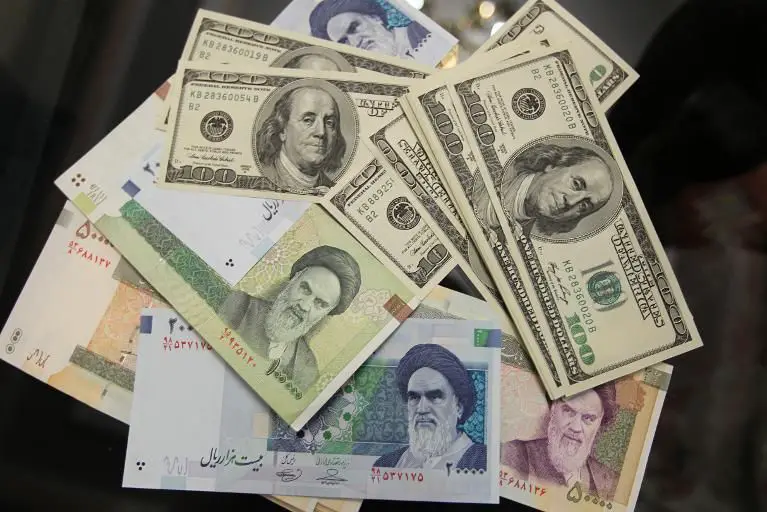Even after traveling thousands of miles to the U.S. to obtain a college degree, international students from Iran and Venezuela are still feeling the effects of U.S. sanctions on their home countries.
For Iranian students, financial trouble began to loom approximately one year ago following President Donald Trump’s decision to officially withdraw from the Iran nuclear agreement, causing the Iranian rial to drop 140 percent in value.
Coupled with the re-imposition of oil and financial sanctions in November, not only were these students’ college savings deemed virtually worthless, with approximately 42,000 rials equating to one U.S. dollar, but money transfers between U.S. and Iranian banks became nearly impossible as well, disallowing students in the U.S. from receiving money from their families.
“While tuition costs have remained the same, [Iranian students] have significantly less money, their family’s paychecks are worth less, and the exchange rate has increased, which makes it extremely difficult for them to afford tuition rates as is,” Shannon Kuehn, director of communications for The Public Affairs Alliance of Iranian Americans (PAAIA), told The College Post.
Venezuelan students studying at U.S. institutions have faced similar struggles, making financing their postsecondary degrees incredibly challenging.
The economic crisis which has consumed the country under the reign of President Nicolás Maduro, compounded with two years of escalating U.S. sanctions which have limited the country’s ability to conduct international financial transactions, have subjected the Venezuelan bolivar to hyperinflation running above 2 million percent per year.
On top of these currency devaluations, international students studying in the U.S. on an F-1 visa are also limited in terms of job opportunities to financially support themselves. In accordance with the F-1 visa guidelines, students can only work a maximum of 20 hours per week, typically in on-campus jobs, significantly limiting their eligibility for potential positions.
“Since they can only work up to 20 hours per week total, and including rent, food, medical stuff and their tuition costs, these students are seriously struggling,” Kuehn said. “They don’t live in an apartment anymore, they live with a friend. They don’t bus to school, they walk. They eat less food. They’re trying to downsize as much as possible.”
Finally, due to Trump’s travel ban which implements a variety of restrictions against Iranian and Venezuelan nationals, international students from these countries are only eligible for single-entry visas, making travel between their home countries and the U.S. both time-consuming and uncertain.
Regardless of these ongoing financial and political crises, the U.S. has remained a top destination of choice for Iranian and Venezualan students studying abroad.
In 2017-2018, Iran ranked 12th among the top places of origin of international students in the U.S., with 12,783 Iranian students enrolled in U.S. postsecondary institutions, according to the Open Doors Report on International Educational Exchange. Venezuela followed shortly after, ranking 20th overall with 8,371 students studying in the U.S.
In response to these hardships that Iranian and Venezuelan students are facing, multiple organizations have stepped in to provide much-needed financial assistance.
Prompted by student outreach and desperation, PAAIA created the Emergency Student Fund in December, offering grants to Iranian students studying in the U.S. facing financial instability due to the devaluation of the rial.
“We hadn’t really received many requests, and then as the rial dropped and sanctions increased, we got contacted by a bunch of students asking if we knew of any way that they could get more funding, or if we could assist them in some way,” Kuehn said. “We decided to set up the Emergency Student Fund in response to that.”
Using funding from the organization itself, PAAIA members and donors, as well as from a partner institution which is matching all of the money that is raised, PAAIA is awarding $1,000 to $5,000 grants to students on a first-come, first-serve basis.
While PAAIA has raised approximately $40,000 and has awarded 15 grants to date, Kuehn said they are continuously fundraising to assist the hundreds of applicants who remain on the waiting list.
In January, the Institute of International Education (IIE) distributed $250,000 in one-time grants to 59 Venezuelan undergraduate students attending U.S. institutions. Students received between $3,000 to $5,000 to help cover educational expenses including tuition and room and board.
The IIE grants went to students at 38 two-year and four-year colleges in the U.S. These schools contributed additional support to grant recipients as well, such as matching funds and offering additional work study opportunities and free meal plans, according to a release.
Although the impact of sanctions on international students may be unintended, Kuehn stressed that the loss of human capital as a result should be seen as devastating from a U.S. perspective.
“There are tremendous benefits in terms of building public diplomacy with these countries, and then also helping in fields like technology and engineering since these students often work in STEM fields and do graduate research,” Kuehn said. “So it’s a big loss to our country if we’re losing these people.”
Dwindling International Enrollment Pushes American Universities Towards Uncertain Futures



